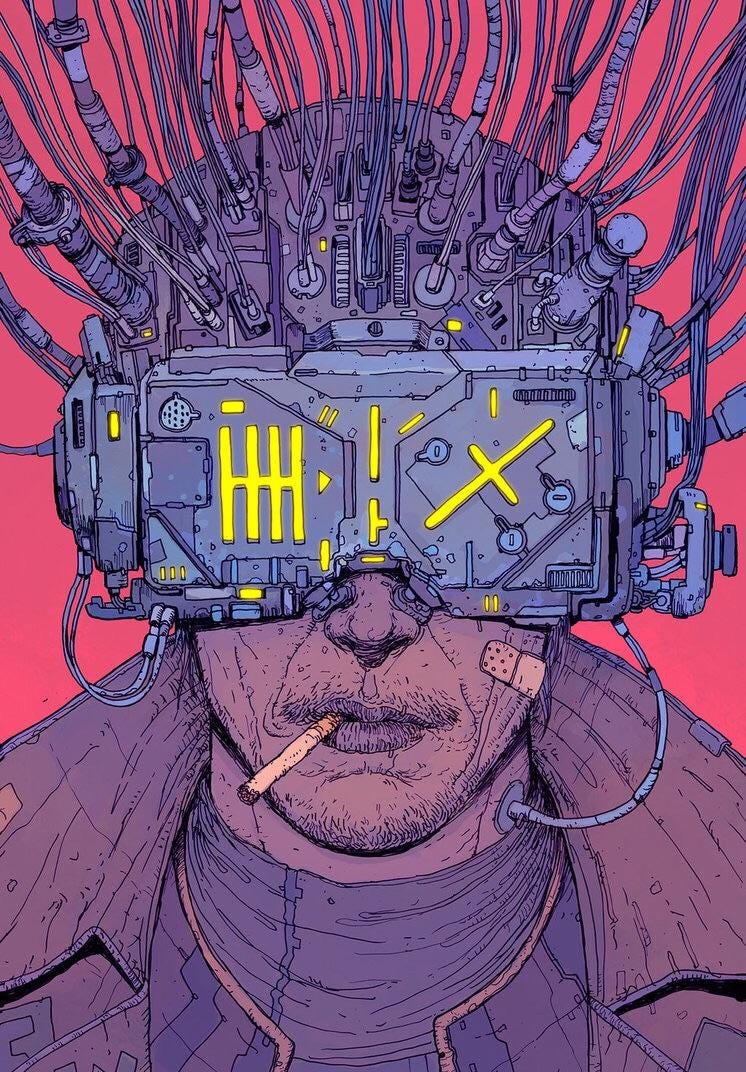Of the new books I read this year, none stood out to me as ‘the best.’ Does this suggest that ‘best,’ as an aesthetic category, no longer holds water in our climate of corporate egalitarianism? Has critical judgment at long last given way to audience engagement? Was Max Horkheimer right all along?
Or, was I just too tired from a Year 2 of pandemic parenting to gather my thoughts?
To quote the great sage Abe Simpson, “A little from column A, a little from column B.”
One book, however, did seem suffused with the zeitgeist of the Internet Thunderdome more than others: No One Is Talking About This by Patricia Lockwood. Did it harness the zeitgeist? Or simply act as a weathervane for it? Both, I think. In its longing to escape the gravitational pull of Online, and ultimate failure to do so, NOITAT sums up life on these online streets as well as anything.
Patricia Lockwood is a poet, memoirist, essayist, novelist, and—above all else—acquired taste. Her fluency in internet hyper-patois makes her sound like a Neo of old AOL chatrooms, seeing deep into the Matrix of digital vulgarity. As I’m a sucker for boundless rhetorical confidence, I love Lockwood’s work. If all she ever wrote were this Miette tweet, her immortality would be assured.

NOITAT, like the novels I wrote about last time, operates like autofiction. The narrator is a character much like Lockwood herself, a Twitter celebrity, traveling to conferences and telling dumb jokes to dumbfounded audiences. Throughout, the internet and all its appendages gets termed ‘the portal,’ as if this is a William Gibson novel. The book unfolds in two distinct parts. In keeping with the science fiction feel, part one could be thought of as Into the Portal, and the second (somewhat inaccurately, as I’ll argue) as Escape from the Portal.
Part One operates like a greatest hits album, with all your favorite Twitter jokes sequenced just right, so each one can achieve its maximum level of absurdity. Part Two, however, takes a dramatic turn, when the narrator’s sister gives birth to a baby who suffers from a rare genetic disorder, and eventually dies. This is all loosely based on aspects from Lockwood’s own life.
NOITAT was received as the Great Internet Novel that had long been prophesied, though there definitely some who thought the book fell short in its second half. The personal material there is extremely painful, of course, making it difficult to portray. I know people who found that part of the book lacking in artfulness. They’re not wrong, I don’t think, but I think the books ends up doing something else interesting, something the book may not even realize it’s doing.
Part One sees itself as utter immersion in online, the endless riffing of Total Irony, where nothing is real and everything is a joke. Part Two, then, is meant to operate as an escape from all that, an emergence into the real—IRL, as it were—in the form of the narrator’s dying niece, a being of such Total Sincerity that the Portal, that fundamentally unserious place, cannot help but slink away. The structure of the book posits that there is, even at this late, an escape from online.
But that’s not possible. There is no escape, and the book, perhaps unwittingly, demonstrates this principle.
Touting a book as the Great Internet Novel puts undue pressure on it. The internet is far too vast, far too varied, for any one novel to capture all of it. Brandon Taylor got at this very issue in his post about Internet novels, noting that, the internet depicted in such novels is awfully white and female. Thinking that a depiction of Total Sincerity does, in fact, offer a fact way out of the portal, out of the internet, is misguided. The book’s switch from Part One to Part Two does not depict an escape from the internet, but rather a passage, from one part of the internet to another.
Put another way: if Part One of NOITAT depicts Twitter, then Part Two, perhaps without being aware of it, depicts Facebook.
For what is Facebook if not a hyper-object of Total Sincerity? What are the endless posts about earnest family struggles if not a window into a daily reality where irony finds little purchase, a reality that, thanks to the vast userbase of Facebook, encompasses the whole world? What if guileless sincerity, rather than brain-poisoned irony, is the true lingua franca of online?
A world-spanning system where people feel emotions more intensely than anywhere else. How’s that for a science fiction novel?
